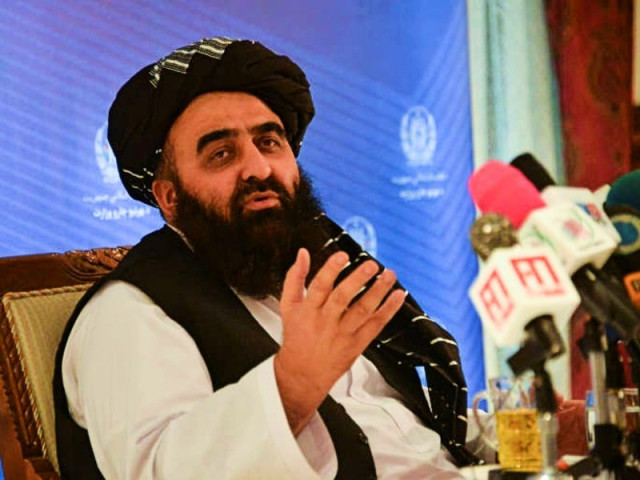No deal yet in Kabul-brokered TTP talks with Pakistan
Afghan foreign minister says Taliban regime acting as mediator on the desire of both the parties

The Afghan Taliban confirmed on Sunday that they were mediating between Pakistan and the banned Tehreek-i-Taliban Pakistan (TTP) but no agreement has been reached so far.
In an interview with BBC Urdu, Afghanistan's acting Foreign Minister Amir Khan Muttaqi said the regime was acting as a mediator on the desire of both the parties in Pakistan.
He said that although parties had not yet reached an agreement, the process has had a “good” start, referring to the announcement of a month-long ceasefire between the Pakistani government and the group.
Muttaqi hoped that the process would not face any hurdles in the future and that relations between the TTP and Pakistan would improve.
Daesh threat to Afghanistan
In what the publication said was his first interview with a female journalist, Muttaqi said that Daesh was a threat to Afghanistan. The Taliban government has eliminated it from a major part of the country, he added.
“Isolated incidents can take place anywhere. Earlier, 70% of Afghanistan was under the control of the Islamic Emirates. Now, Daesh has been purged from all these areas. They existed only in the areas which were ruled by the former Kabul government,” he said.
He added that the militant group started to rear its head after the formation of their regime but they took effective measures, confining the terrorist group to certain areas.
“The isolated (terrorist) incidents at some places like mosques, can take place anywhere in the world,” he said.
Ties with India
Asked about the Taliban government’s ties with India, the Afghan minister said that Afghanistan did not desire any confrontation with any country, including India.
When asked whether there was a reaction from China or Pakistan on Afghanistan's close ties with India, he referred to recent meetings held in Moscow. “We had a positive conversation there and hopefully, we will not oppose any country,” he added.
Women rights
The acting foreign minister rubbished the impression that women were being excluded.
Read More: Muttaqi sanguine about Pakistan-TTP talks
“Women have 100% inclusion in the health sector. They are also teaching in the education sector. We brought improvement on the matter. They are serving in every sector where they are needed. We have no such policy to deny women of their rights in any field,” he remarked.
However, Muttaqi admitted that the educational institutions were yet closed in some areas due to the Covid-19 pandemic.
“Educational institutes are closed in no province. Educational institutes are open across the country. We have divided educational institutes into three categories. All of the boys’ schools are open throughout the country. The girls’ schools up to class 6 are also open in all provinces,” the acting foreign minister said.
He said higher education institutes were also open in some provinces, but not everywhere. "So far, 75% of schools have been opened. But we have not stopped at this point rather working and making progress day by day.”
To a question about the permission for women serving in government or other offices to resume their work, Muttaqi said the Taliban government had not sacked any woman serving during the previous government. No reduction was made in their salaries, and opportunities for their education and employment, he added.
The acting foreign minister said their government fulfilled the international demand of an inclusive government in Afghanistan which represented all stakeholders.
To a question about their future course of action in case the international community did not recognize their government and restore their financial assistance, he said they were advancing ahead in their relations with the world and hoped that those ties would strengthen in the future.
He said as their government consisted of representation from all areas and ethnicities, the world should recognize them.
“The incumbent Afghan government comprised the whole of the staff and workers of previous government totalling around 500,000 people. If the world had recognized the previous government as inclusive, then why they don’t do it with our government,” he questioned.
“(From an inclusive government), if they mean a cabinet representing all areas, then we have a minister from Panjshir. People from Badakhshan, Faryab, Kandahar, Nangahar and Kabul are also there. Therefore, every country has its own definition of an inclusive government. But we will continue this effort to enhance inclusivity of our government and grant everyone their right,” he said.


















COMMENTS
Comments are moderated and generally will be posted if they are on-topic and not abusive.
For more information, please see our Comments FAQ